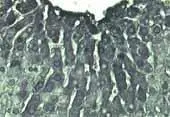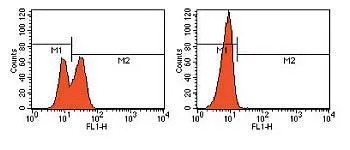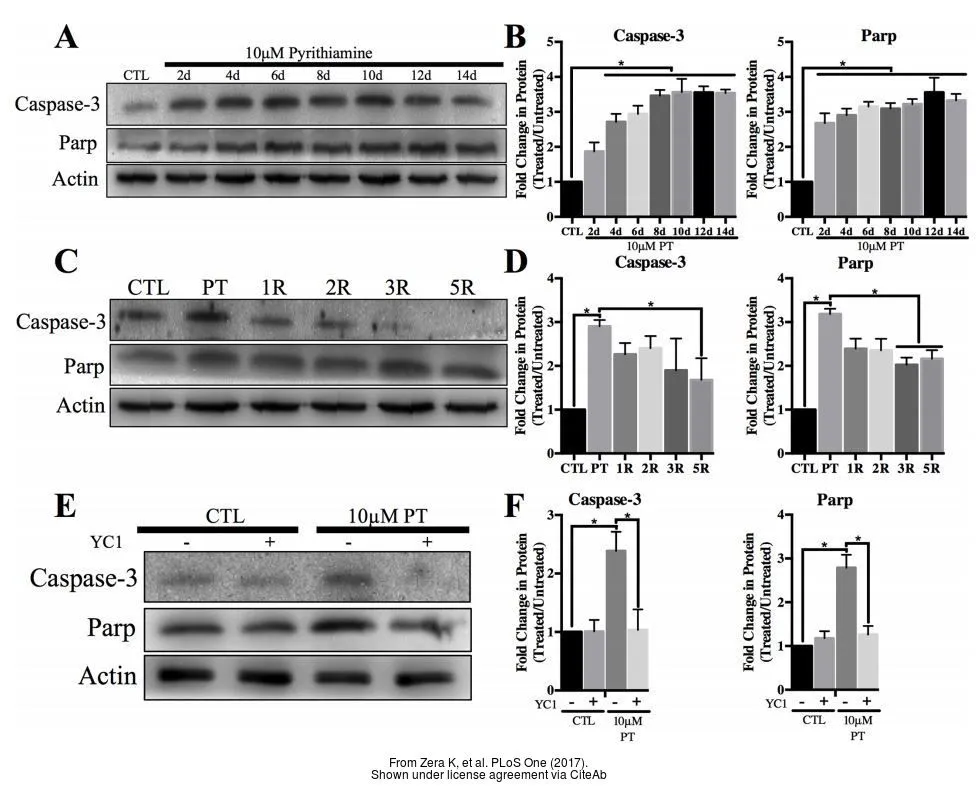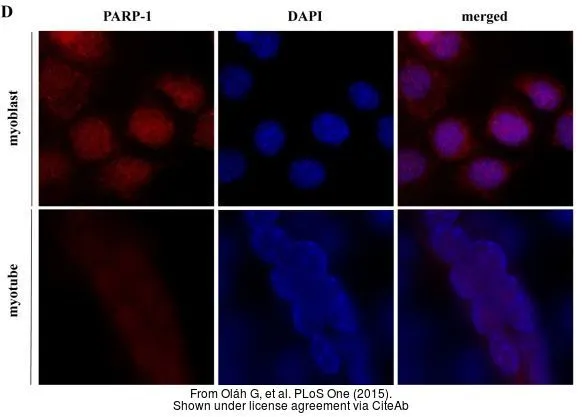PARP antibody [N2C1], Internal
GTX112864
ApplicationsImmunoFluorescence, ImmunoPrecipitation, Western Blot, ChIP Chromatin ImmunoPrecipitation, ImmunoCytoChemistry, ImmunoHistoChemistry, ImmunoHistoChemistry Paraffin
Product group Antibodies
TargetPARP1
Overview
- SupplierGeneTex
- Product NamePARP antibody [N2C1], Internal
- Delivery Days Customer9
- Application Supplier NoteWB: 1:500-1:20000. ICC/IF: 1:100-1:1000. IHC-P: 1:100-1:1000. IP: 1:100-1:500. *Optimal dilutions/concentrations should be determined by the researcher.Not tested in other applications.
- ApplicationsImmunoFluorescence, ImmunoPrecipitation, Western Blot, ChIP Chromatin ImmunoPrecipitation, ImmunoCytoChemistry, ImmunoHistoChemistry, ImmunoHistoChemistry Paraffin
- CertificationResearch Use Only
- ClonalityPolyclonal
- Concentration0.1 mg/ml
- ConjugateUnconjugated
- Gene ID142
- Target namePARP1
- Target descriptionpoly(ADP-ribose) polymerase 1
- Target synonymsADPRT, ADPRT 1, ADPRT1, ARTD1, PARP, PARP-1, PARS, PPOL, Poly-PARP, pADPRT-1, poly [ADP-ribose] polymerase 1, ADP-ribosyltransferase (NAD+; poly (ADP-ribose) polymerase), ADP-ribosyltransferase NAD(+), ADP-ribosyltransferase diphtheria toxin-like 1, DNA ADP-ribosyltransferase PARP1, NAD(+) ADP-ribosyltransferase 1, poly (ADP-ribose) polymerase family, member 1, poly(ADP-ribose) synthetase, poly(ADP-ribosyl)transferase, poly[ADP-ribose] synthase 1, protein poly-ADP-ribosyltransferase PARP1
- HostRabbit
- IsotypeIgG
- Protein IDP09874
- Protein NamePoly [ADP-ribose] polymerase 1
- Scientific DescriptionThis gene encodes a chromatin-associated enzyme, poly(ADP-ribosyl)transferase, which modifies various nuclear proteins by poly(ADP-ribosyl)ation. The modification is dependent on DNA and is involved in the regulation of various important cellular processes such as differentiation, proliferation, and tumor transformation and also in the regulation of the molecular events involved in the recovery of cell from DNA damage. In addition, this enzyme may be the site of mutation in Fanconi anemia, and may participate in the pathophysiology of type I diabetes. [provided by RefSeq, Jul 2008]
- Storage Instruction-20°C or -80°C,2°C to 8°C
- UNSPSC12352203
References
- The aqueous extract of brucea javanica reduces tumorigenicity of human lung cancer tumorspheres. Kim SH et al., 2021, Cancer Drug ResistRead more
- LNX1 Contributes to Cell Cycle Progression and Cisplatin Resistance. Jang M et al., 2021 Aug 12, Cancers (Basel)Read more
- Cavin3 released from caveolae interacts with BRCA1 to regulate the cellular stress response. McMahon KA et al., 2021 Jun 18, ElifeRead more
- A high-throughput pipeline for validation of antibodies. Sikorski K et al., 2018 Nov, Nat MethodsRead more
- PARP-1 protects against colorectal tumor induction, but promotes inflammation-driven colorectal tumor progression. Doersam B et al., 2018 Apr 24, Proc Natl Acad Sci U S ARead more
- GSK3beta negatively regulates TRAX, a scaffold protein implicated in mental disorders, for NHEJ-mediated DNA repair in neurons. Chien T et al., 2018 Dec, Mol PsychiatryRead more
- Reactive oxygen species-driven mitochondrial injury induces apoptosis by teroxirone in human non-small cell lung cancer cells. Wang JP et al., 2017 Sep, Oncol LettRead more
- The CHAC1-inhibited Notch3 pathway is involved in temozolomide-induced glioma cytotoxicity. Chen PH et al., 2017 Apr, NeuropharmacologyRead more




